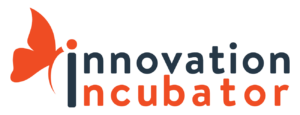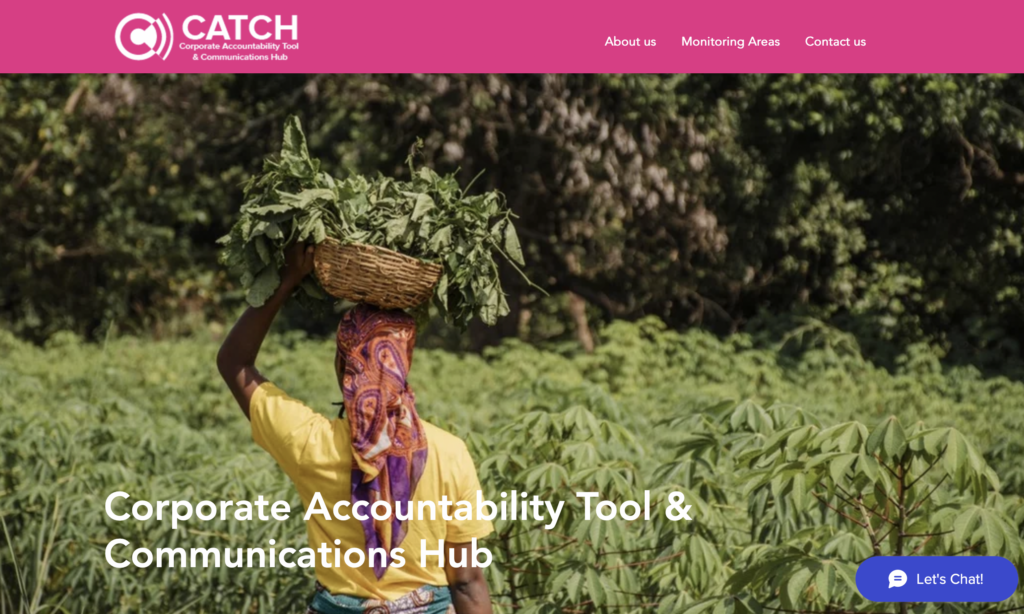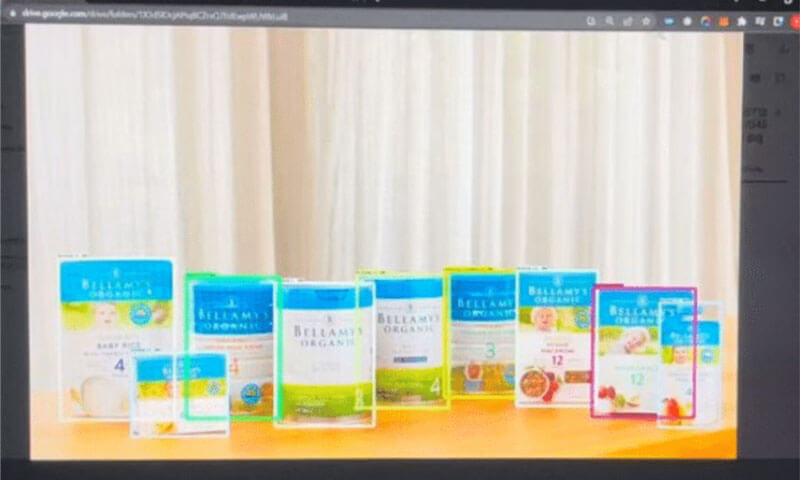
Corporate Accountability Tool & Communications Hub (CATCH)
CATCHING Code violations to safeguard infant and young child nutrition and development.

As more and more corporations expand their operations and influence beyond national borders, it has become increasingly imperative to hold corporations accountable to safeguard public interests. The Corporate Accountability Tool & Communications Hub (CATCH) is a virtual platform designed to hold corporations accountable by monitoring marketing practices in areas such as food, tobacco, and alcohol, and communicating findings to raise awareness and prompt change. A social innovation connector, CATCH links company actions to communities and people with an interest in ethical marketing.
Our pilot aims to equip the public, policymakers, advocates, governments, U.N. agencies, and civil society to generate corporate accountability for marketing to be in line with the International Code of Marketing of Breast-milk Substitutes (the Code).
An incremental innovation – An existing idea, model, product, or service in a new market.
We partner with Hekate, a company that brings AI technology to social impact.
Challenging the Status Quo to Impact Maternal and Child Health
Q: What solution is offered by this innovation?
Globally, every year, 700,000 deaths can be prevented by improved breastfeeding. Breastfeeding has been strongly correlated with strong health and development outcomes for infants and young children that reach far into adulthood, such as improved education and higher income earning potential. However, Code violations on digital platforms are rampant since highly personalized promotions regularly appear as advertising and scrutiny from enforcement agencies are easily evaded.
Although it is critical for individual states to hold corporations accountable by enforcing national regulations, civil society plays a key role in providing necessary support and expertise. Today, there is no global ‘hub’ that uses artificial intelligence to systematically document International Code of Marketing of Breast-milk Substitutes (the Code) violations, allowing for rapid vetting and analysis for advocacy, policy dialogue, public knowledge, and research.
CATCH is a resource-efficient and smart global monitoring system that closes the gap between companies’ accelerated technological changes and marketing tactics, aiding civil society, governments, and U.N. agencies to act.
Watch this short video explaining CATCH:
Q: What is most exciting about CATCH?
What is novel is that CATCH merges artificial intelligence (AI) with public participation. While AI is used to autodetect large amounts of violations, the public is encouraged to submit violations for machine and human vetting. This allows anyone from the public to actively participate in Code monitoring to hold Breastmilk Substitute companies accountable. Once our AI technology has detected commercial violations, it is connected to a communications platform that disseminates findings and connects to partners virtually. The model is also easily scaled and adapted.

Demonstration of live autodetection of violations on social media
Q: How does CATCH support system-wide change?
This innovation employs the concept of digital transformation to reconstruct Code monitoring functions into less resource-intensive digital solutions. Eventually, this method will significantly reduce manpower in Code monitoring.
Apart from providing quick references on company marketing activities, the tool is a global Code monitoring platform and repository with built-in features to guide countries on generating national monitoring briefs/reports to strategically funnel information to governments and civil society. This design builds accountability over time, making violations more visible and giving advocates data to demand change and strengthen enforcement.
For the time being, CodeCatch will be piloted in Australia, the USA, Malaysia, the Philippines, Singapore, Hong Kong, and Nigeria.
Looking Ahead: Lessons for our Impact Network
We have experienced challenges relating to building an AI model that automatically categorizes Code violations into different groups according to the Code articles and WHA resolutions. While violations remain violations, digital marketing has blurred the lines between several types of violations, making it difficult to fit the violations squarely into certain Code articles. We have had to become creative to combine certain Code articles and resolutions together to be able to capture the violations and classify them correctly.
In the next five years, together with Hekate, we have big ambitions. We look forward to partnerships around the globe in different fields so that governments or U.N. agencies can support, sustain, and scale the operation.
We aim to adapt the pilot to monitor violations and damaging practices in other areas, such as labeling of food and beverages for children, and alcohol.
Page references:
¹ https://www.aliveandthrive.org/en/the-cost-of-not-breastfeeding
² https://www.sciencedirect.com/science/article/abs/pii/S0140673615010247
Watch the Latest from the CATCH CHATS Series
This two-part series features David Clark, a former Legal Specialist from UNICEF and currently a Public Health and Human Rights Law Specialist, and Kathy Shats, Legal Specialist from UNICEF HQ.